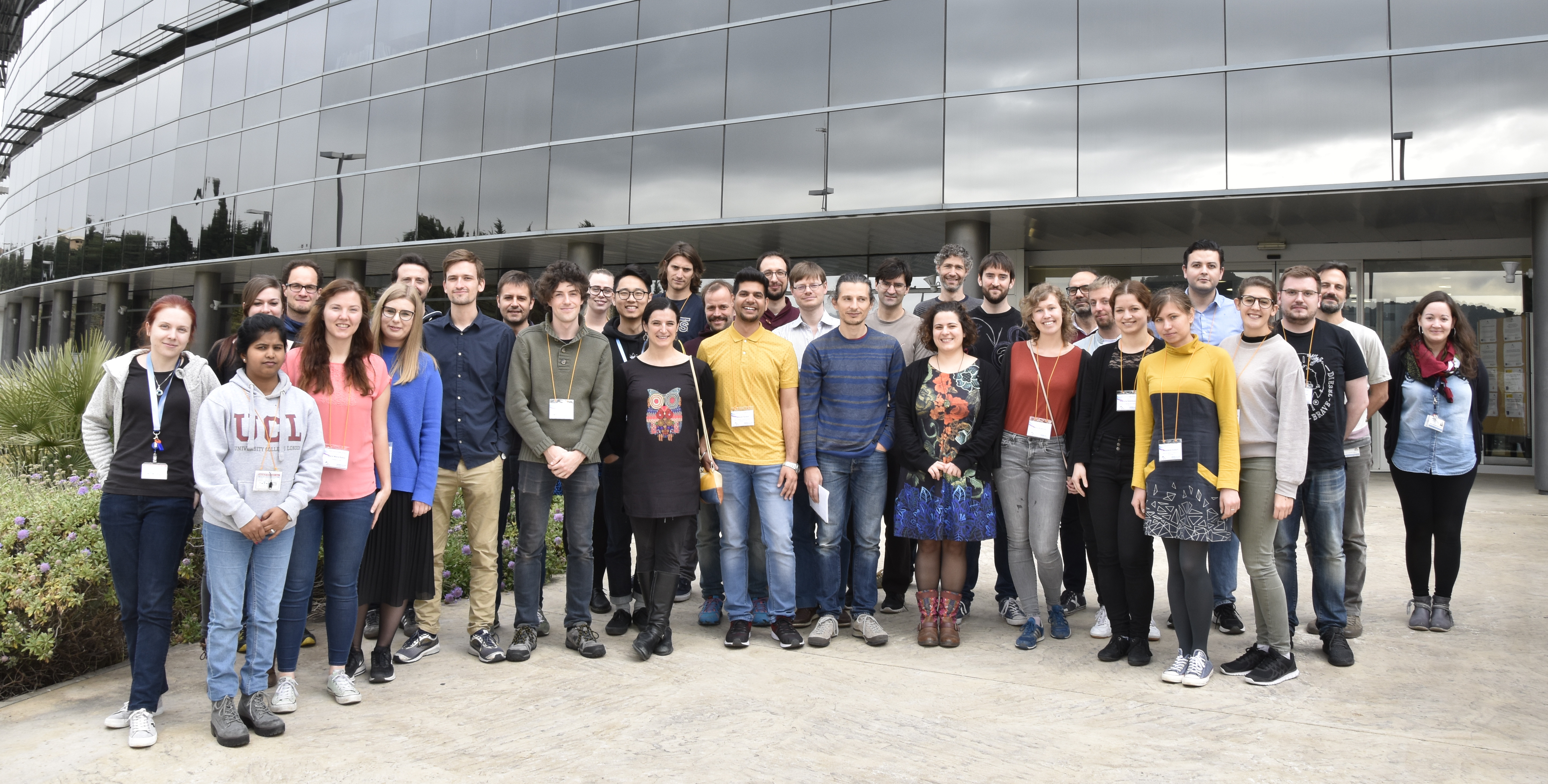ALBA Synchrotron

From 1st to 7th April the ALBA Synchrotron is hosting the European course Hercules, where 20 young researchers from all over the world will learn about synchrotron light science. During that week, ALBA staff provides training for these students in a practical way about the cutting edge techniques with synchrotron radiation, with applications in fields such us Biology, Chemistry, Physics or Hard & Soft Condensed Matter.
With a firm commitment to training, ALBA participates in the 2019 edition of the Hercules European School. For a whole month, this program opens the doors of the main European neutron and synchrotron radiation facilities to young scientists from European universities and laboratories. Hercules is coordinated by the Université Grenoble Alpes and takes place mainly in this French city, which holds the European synchrotron ESRF.
Complementing the training in Grenoble, the attendants will travel to other European centers for two weeks, among them, the ALBA Synchrotron.
During the sessions held at ALBA, young researchers will have the opportunity to learn deeply different synchrotron light techniques, as well as seeing their potential and how these techniques can contribute to their current and future researches. Hands-on practices at the beamlines will be carried out by scientists from ALBA Experiments Division. This closely training is highly valued for the participants of the course since "speaking and sharing knowledge with experts and also course mates is very enriching".
Lectures, tutorials and hands-on practicals at the ALBA Synchrotron will be divided in two kind of sessions; the first one about Physics and chemistry of condensed matter and the second one, about Biomolecular structure and dynamics. After this week in ALBA, students will travel to Paris, at the French synchrotron radiation facility SOLEIL and the French neutron reactor Orphée – LLB. Other facilities the attendants will visit are the Italian synchrotron light source Elettra and Free Electron laser Radiation for Multidisciplinary Investigations (FERMI) in Trieste, the German synchrotron radiation facility Deutsches Elektronen-Synchrotron (DESY) and the European XFEL in Hamburg, the Swiss synchrotron radiation facility Swiss Light Source (SLS) at the Paul Scherrer Institute (PSI) in Villigen or the KIT Light Source in Karlsruhe (Germany).
28 years promoting a talent pool for synchrotrons
Since its first session in 1991 Hercules has displayed a number of features that differentiate these courses from the rest: simultaneous training in neutron and synchrotron radiation science, tutorials given by highly qualified international specialists, and a substantial fraction of the programme devoted to practical sessions carried out on cutting edge instruments, at European Large Facilities.
Hercules aims to provide training for the future researchers about new techniques using neutron and synchrotron radiation, expanding their theoretical and practical knowledge, not only for their present research but for their scientific career, as well as to build a network of relations with fellow young researchers and experienced teachers from all around the World.